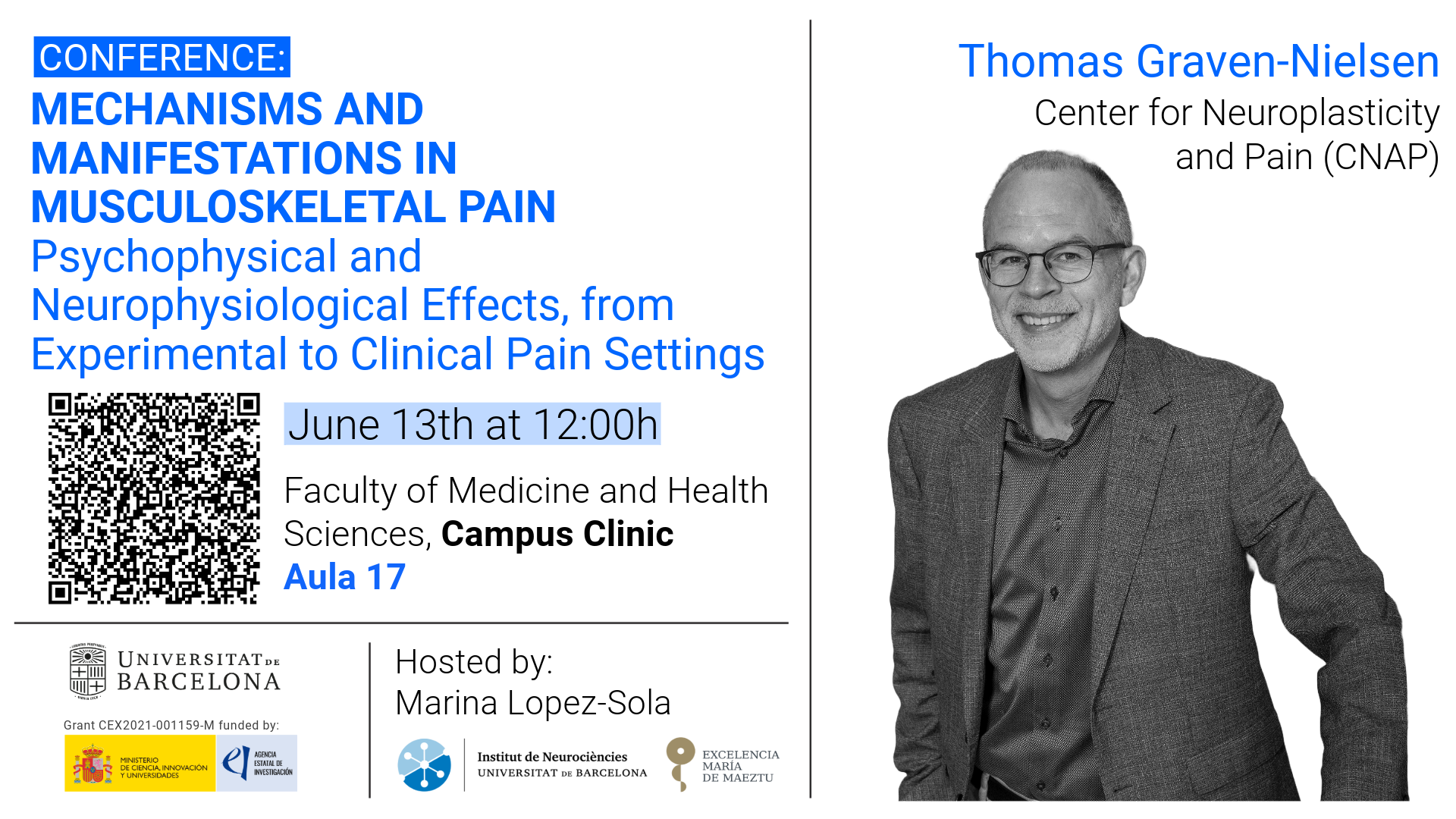MECHANISMS AND MANIFESTATIONS IN MUSCULOSKELETAL PAIN: Psychophysical and Neurophysiological Effects, from Experimental to Clinical Pain Settings
13/06/2025 ⎯ 12:00 pm - 1:00 pm - Free

Abstract
Chronic musculoskeletal pain is highly prevalent but still the underlying pain mechanisms remain poorly understood, and current treatments are largely ineffective. Accumulating evidence suggests that the sensorimotor system undergoes neuroplastic changes in response to musculoskeletal pain. In humans, such changes may manifest as widespread pain, hyperalgesia, facilitated central pain mechanisms, and reorganisation of sensorimotor control at both spinal and cortical levels. The mechanistic progression from acute to persistent pain remains unclear, as does the ability to predict which individuals are vulnerable to developing chronic pain. This presentation will show the cortical excitability changes over several days in response to experimental pain in both healthy individuals and pain patients. It will also address how the somatosensory cortical system is affected in parallel with behavioural changes. Additionally, novel approaches using non-invasive brain stimulation to modulate pain and related cortical manifestations will be illustrated.
More about the speaker, Thomas Graven-Nielsen, DMSc, PhD, Professor
Thomas Graven-Nielsen acquired his PhD within Biomedical Science and Engineering in 1997 (Aalborg University, Denmark). In 2006 he obtained a Doctoral degree in Medical Science (DMSc, Copenhagen University). He is Director at Center for Neuroplasticity and Pain (CNAP), Aalborg University, Denmark (since 2015), and Full Professor in Pain Neuroscience since 2008. The Danish National Research Foundation funds CNAP. He is also Councillor in the International Association for the Study of Pain.
The research focuses on translational studies of musculoskeletal pain bridging the gap between basic animal findings and clinical manifestations of pain. The scope is to identify and modulate key features of human pain neuroplasticity leading to prevention of maladaptive neuroplasticity and promote advantageous neuroplasticity. The core areas are muscle pain, joint pain, referred pain, localised and widespread deep-tissue hyperalgesia, pharmacological screening, and electrophysiological techniques to assess muscle pain physiology and neuroplasticity. Development of pain models, bio-markers, assessment and neuro-modulatory technologies are key biomedical tools for the translational studies.
A core research philosophy in his work is that pain research by nature is multidisciplinary, hence interdisciplinary and intersectorial collaboration is a key concept, as is collaboration with excellent researchers and students. Thomas has published 370+ peer-reviewed scientific papers (H-index: 75, approx. 19.000 citations) and received several awards, most notably the Knight of the Order of Dannebrog (2020). He reviews papers on a regular basis for high ranked journals, has presented as keynote speaker at several international conferences, and organised scientific workshops and symposia at international meetings. More than 10 national and international collaborations on translational pain research have been established including research groups in Sweden, UK, Japan, USA and Australia. Several international guest professors have worked with Thomas in his laboratory facilities. Moreover, advocacy for pain research has been a cornerstone activity via dedicated involvement.
